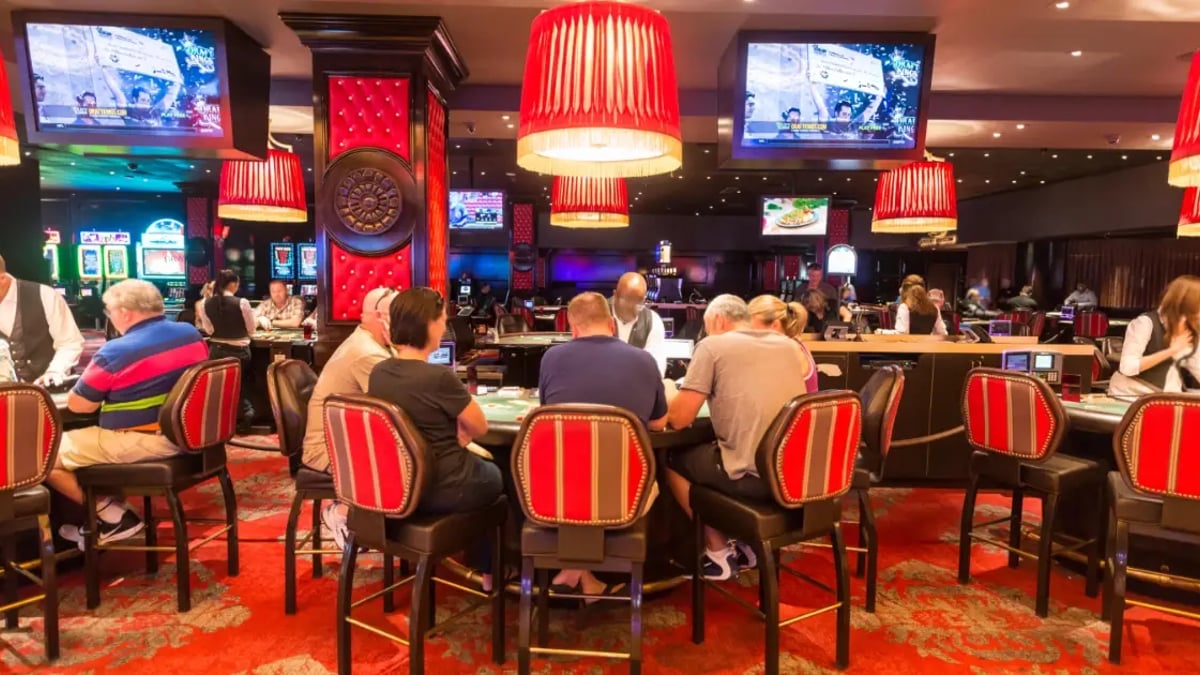Nevada Gaming Salons Shake-Up: Lower Barriers To Lure High-Profile Players

The Nevada Gaming Control Board wants to make substantial changes to the regulations regarding private gaming salons in an attempt to maintain an edge in the constantly evolving competitive landscape for Nevada casinos.
Private gaming salons were originally reserved for ultra-high rollers, but if the Control Board gets its way, guests will also be able to include celebrities and poker fans in a less public setting, generating additional revenue streams for the state.
The proposed updates, unveiled during a two-hour workshop, would dismantle barriers established over two decades ago.
Entry Threshold To Be Slashed
The proposed changes, unveiled during a two-hour workshop, would dismantle barriers established over two decades ago.
The mandatory $500 minimum wager on slot machines would be eliminated; casinos could set their own limits, subject to board approval.
Salons would no longer require table games and could even temporarily open to the public.
Most notably, the financial threshold for entry, currently a $300,000 deposit, line of credit, or combination of the two, would drop to $20,000, with the board chair empowered to approve even lower amounts on a case-by-case basis.
Check out our casino games hub right here!
Nevada Follows Las Vegas Lead
These salons, first legalized in 2001 with a $500,000 minimum (later reduced in 2008), were designed to woo wealthy gamblers amid economic uncertainty.
Board chair Mike Dreitzer emphasized that the mission was "to generate increased revenue for Nevada during unpredictable times while offering innovative, adaptable and distinctive amenities, as competition in the U.S. and globally has intensified to unprecedented levels."
Leaders from the Nevada Resort Association praised the reforms as transformative.
CEO Virginia Valentine pointed out Las Vegas' transition from the "Entertainment Capital" to the "Sports and Entertainment Capital," trying to draw in athletes, entertainers, and international guests who wanted exclusivity.
"By lowering the minimum front-money requirements while offering the same privacy, security, and elevated gaming experience, we believe we’ll attract casino patrons who aren’t playing here now," she said.
Valentine pointed out that no other state regulates such minimums, putting Nevada at a disadvantage against the 48 states (excluding Utah and Hawaii) with legal gaming.
Poker Faces Major Change
Poker games, previously off-limits in salons, would be welcomed under the new proposals.
It would require a $10,000 buy-in per person, with a minimum of $50,000 per table, which would move high-stakes games from personal residential homes or out-of-state venues.
Senior Deputy Attorney General John Michela suggested it might have "significant revenue for Nevada."
The debate during the workshop was lively. Casino executives like Wynn Las Vegas' Charlie Stone and Hard Rock Las Vegas' Joe Lupo argued for zero minimums, stressing that operators could vet guests themselves.
"We’re in the age of cell phones; everyone has a camera in their pocket," Stone said, advocating for salons as sanctuaries for privacy-seeking celebrities who might not be big gamblers, but would boost marketing through their presence.
With online casinos and gaming in general siphoning dollars and competition intensifying, Nevada's move indicates a proactive approach: adapt or be forgotten in the competitive and high-stakes entertainment world.










